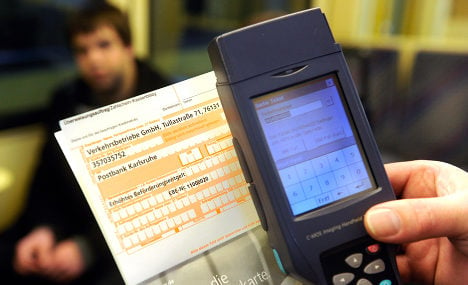Some even describe the inspectors, who wear ordinary clothes, so that those riding the transit system illegally can avoid them before being challenged to show their tickets.
Several such groups have sprung up over recent months on social networks, especially in the larger cities of Hamburg, Munich and more recently Berlin.
Some messages are short and to the point.
“S21 Berliner Tor bound for Bergedorf,” went one such warning posted on Facebook Wednesday by one of the 6,300 members of the “Hamburg fare dodgers” social network group.
Others are more detailed.
“Man with receding hairline, black jacket/trousers, white shirt. Second man with black trousers, jacket and light blue shirt. Third man with black trousers and light grey shirt. All aged between 35 and 45,” went another warning.
In Munich, where some 13,700 people have joined the “MVV Blitzer” group, named after the initials of the local public transport system and the short-form German word for speed-camera, people using smartphones “tweet” their warnings.
In Berlin, a similar group was recently set up, but to date only has 20 members.
Public transport officials expressed disgust at such efforts to “out” their inspectors, but said they did not believe there would be much impact on ticket sales.
“Several hundred people work as inspectors for the HVV (Hamburg public transport) and no group can possibly keep track of them all,” Gisela Becker, spokeswoman for the transit authority, said.
“We’re pretty relaxed about it,” said her Munich colleague Beate Brennauer.
Inspectors change directions and lines so often that even with the use of Internet, fare dodgers cannot make out a pattern of their comings and goings, she said.
AFP/mdm



 Please whitelist us to continue reading.
Please whitelist us to continue reading.
Member comments